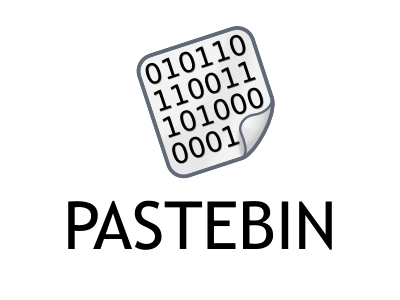Lets learn "How to build python bot to control your VLC Player"
Python Bot to make VLC Voice Controlled in Linux
In this tutorial, we are going to discuss a fairly simple but highly overrated topic Voice Recognition.
Here, we connect our very own VLC media player to python to get things done like
- Play (plays this track)
- Pause (Pauses this track)
- Next (plays next track)
- Previous (play previous track)
- Stop (stops playing)
with the help voice Voice Commands. This script not in deployment phase but still it can help a lot to understand the basics we are following. The main aim is to design a voice command analysable system which we will be doing in next tutorial.
It should be know that VLC provides many interfaces, and not only the QT interface that we see.
The one used here is telnet based interface which provides a local socket based connection over which VLC commands of play, pause, etc can be executed by sending socket command request. Also google speech api is put to use here, which basically packs our voice data, channelises it to particular HTTP port of GOOGLE server, over which various Machine Learning Algorithms work to identity the word. It is as simple as that
To install this python script, follow these steps:
Create your playlist, and save it as "pk.xspf" (pk is used in script)
Place this xspf in main folder alongside __init__.py .
Now download few Dependencies
- $ pip install pyaudio
- $ sudo apt-get installl libportaudio-dev
- $ sudo apt-get install python-dev
- $ sudo apt-get install libportaudio0 libportaudio2 libportaudiocpp0 portaudio19-dev
- $ sudo pip install SpeechRecognition
With these installed, get the script
- $ wget https://github.com/systm32/vlc_smart
Run this via
- $ cd vlc_smart/main
- $ python __init__.py
The python script
import sys, os, subprocess, importlib, time, socket, threading
flag = 1
class vlc_smart:
bool_vlc = True
bool_pip = True
def __init__(self):
# checking if vlc exists
try:
print("Checking if VLC exists")
subprocess.call(["vlc", "--version"])
except:
print("VLC not found\nTO install vlc type\n$ sudo apt-get install vlc")
self.bool_vlc = False
# checking if pip exists
try:
print("Checking if PIP exists")
subprocess.call(["pip", "--version"])
except:
print("PIP not found\nTo install pip type\n$sudo apt-get install python-pip")
self.bool_pip = False
# exit if anyone's missing
if self.bool_vlc == False or self.bool_pip == False:
exit(0)
# install and import
vlc_smart.install_and_import(self, "pyaudio")
vlc_smart.install_and_import(self, "speech_recognition")
print("Explicit dependencies statisfied!")
# check if microphone is attached
try:
num_micros = len(globals()["speech_recognition"].Microphone.list_microphone_names());
if(num_micros == 0):
num_micros = num_micros / 0
print("Microphone Found!");
except Exception as e:
print("Some Error Occured while Searching for Microphones\nPlease make Sure you have Microphones attached");
def install_and_import(self, package):
try:
print("Checking if " + package + " exists")
importlib.import_module(package)
print("Satisfied!")
except ImportError:
print("Installing Package, may take some time")
import pip
pip.main(['install', package])
finally:
if(package == "speechrecognition"):
package = "speech_recognition"
globals()[package] = importlib.import_module(package)
class vlc_client:
port = "4200"
socket_object = None
socket_connected = False
wait_time = 50
def __init__(self, port=4200, default_playlist=""):
self.port = port
try:
t = threading.Thread(target=self.vlc_process, args=(port, default_playlist))
t.start()
except:
print("Error hosting vlc on said port. Try changing socket port in settings")
exit(0)
disp_once = False
while True:
try:
self.socket_object = socket.socket(socket.AF_INET, socket.SOCK_STREAM)
self.socket_object.connect(('localhost', port))
print("Connected")
self.socket_connected = True
break
except:
if(disp_once == False):
print("Trying to Connect")
disp_once = True
def vlc_process(self, the_port=4200, playlist=""):
os.system("vlc --extraintf rc --rc-host localhost:" + the_port.__str__() + " " + playlist)
def play(self):
new_time = time.time()
while True:
if(time.time() - new_time > self.wait_time):
break
if self.socket_connected:
break
cmd = "play\n"
print("Playing")
self.socket_object.sendall(cmd.encode())
def pause(self):
new_time = time.time()
while True:
if(time.time() - new_time > self.wait_time):
break
if self.socket_connected:
break
cmd = "pause\n"
print("Pausing")
self.socket_object.sendall(cmd.encode())
def next(self):
new_time = time.time()
while True:
if(time.time() - new_time > self.wait_time):
break
if self.socket_connected:
break
cmd = "next\n"
print("Playing Next")
self.socket_object.sendall(cmd.encode())
def previous(self):
new_time = time.time()
while True:
if(time.time() - new_time > self.wait_time):
break
if self.socket_connected:
break
cmd = "prev\n"
print("Playing Previous")
self.socket_object.sendall(cmd.encode())
def stop(self):
new_time = time.time();
while True:
if(time.time() - new_time > self.wait_time):
break
if self.socket_connected:
break
cmd = "stop\n"
print("Stopped")
self.socket_object.sendall(cmd.encode())
class sr_client:
recog_obj = None
def __init__(self):
self.recog_obj = globals()["speech_recognition"].Recognizer()
def sound_recognise(self):
global flag
try:
with globals()["speech_recognition"].Microphone() as source:
print("Your Command:")
audio = self.recog_obj.listen(source)
print audio
return_val = "error"
return_val = self.recog_obj.recognize_google(audio)
flag = 1
print("You said: " + return_val)
except globals()["speech_recognition"].UnknownValueError:
flag = 1
print("Please Say again:")
except globals()["speech_recognition"].RequestError as e:
flag = 1
print("Connection error,check your Connectivity;\n {0}".format(e))
except Exception as e:
flag = 1
print("Some error Occured...Continue...")
flag = 1
return return_val
def main():
enough = False
try:
vlc_smart()
except Exception as e:
print("Error Occured")
finally:
vc = vlc_client(port = 4200, default_playlist="pk.xspf")
sr = sr_client()
global flag;
while(True):
print 'Hey'
if flag == 1:
flag = 0
word = sr.sound_recognise()
if(word == "activate"):
enough = False
if word == "enough":
enough = True
if(enough == True):
continue
if word == "play":
vc.play()
if word == "hold" or word == "old" or word == "cold" or word == "told" or word =="pause" or word == "p***":
vc.pause()
if word == "next":
vc.next()
if word == "previous":
vc.previous()
if word == "stop":
vc.stop()
main()
Voila! Your VLC works just the same way as it did, but now it also starts listening to your commands. Fell Free to continue engineerin' around this script, to make it more customised to your way of speaking.
Well, nothing to do much.. huh? Ok...we will Try to engineer our very own Speech Recogntion system in the next tutorial.





Comments
Post a Comment